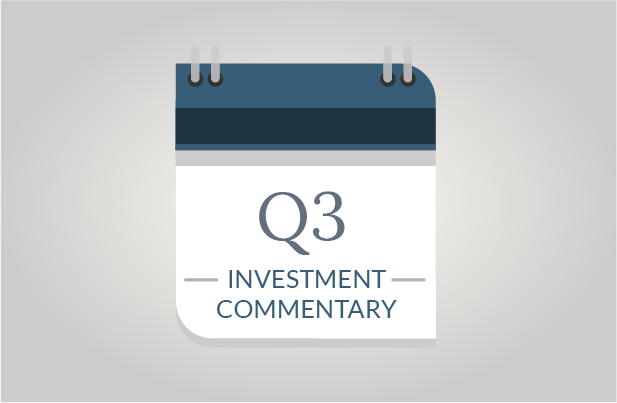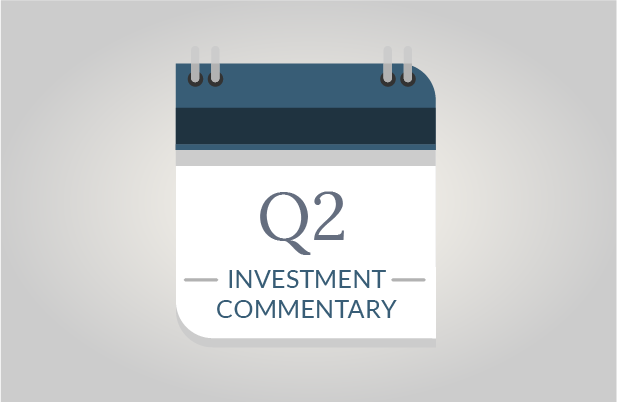SageVest Wealth Management’s quarterly commentary for the third quarter of 2017 is now available. Highlights include:
— It was a summer of fast-flying headlines, tweets and, sadly missiles, raising tensions and controversy.
— Fortunately, investment markets remained relatively immune to the news cycle, continuing to set new highs, and rewarding stock investors in the process.
— While the world is not devoid of risk, there are plenty of positive market attributes to celebrate as we head into year-end.
Current Headlines And Your Finances
When you size up the headlines, there’s plenty of bad news to worry about. Political threats between President Trump and North Korea’s Kim Jong Un rank highest on that list, swiftly followed by multiple natural disasters, the quagmire of health and tax reform, political partisan conflict, upcoming shifts in monetary policy, and depending upon your stance, varying Presidential comments and tweets.
Despite all of this, the markets have remained seemingly unhindered by economic or political tensions. Indeed, stock markets have achieved ostensibly daily highs, buoyed by continuing economic optimism and a pro-business environment. Furthermore, not only are stocks doing well, so are bonds. Positive returns in bonds have some investors perplexed, given Fed rate increases over the past year, combined with plans to tighten its balance sheet. The answer remains low inflation.
We take a closer look at the headlines, offering insight as to which inspire confidence or concern for investors as we look forward to year-end and into 2018.
Healthcare Reform
For better or for worse, healthcare reform has seemingly failed, at least for the time being. This technically removes a level of uncertainty from the markets, but we all await guidance on 2018 premiums, which may have an impact on discretionary spending, savings, and other important aspects relative to personal finance, the economy, and the markets.
Tax Reform
As of the writing of this commentary, tax reform discussions are center stage, with the recently released GOP tax proposal to overhaul the US tax code. While we never say ‘never’, legislatively speaking, tax reform is unlikely to occur this year. That said, it certainly shouldn’t be dismissed as even hypothetical discussions about corporate tax breaks and repatriation of overseas US company profits (let alone effective legislation) have the potential to significantly boost US stock markets.
On the personal income tax side of things, we continue to monitor the likely impact upon our clients, particularly the loss of itemized deductions, relative to lower tax rates.
Natural Disasters
The past several weeks have been dominated by tragic natural disasters and humanitarian crises, including a series of devastating hurricanes and earthquakes. Before we discuss the economic aspects, we offer our heartfelt condolences to all those affected.
Short-term, these disasters will dilute GDP figures, as so many business and economic activities in the affected areas are at a stand-still. However, while it’s hard to find a silver-lining in such widespread tragedy, these disasters will bring massive rebuilding efforts, car purchases, infrastructure rebuilding, and more. We would certainly prefer an economic boost for happier reasons, and one that creates longer-lasting economic expansion, but at least there should be a short- to mid-term economic boost to the economy, and potentially the markets. The caveat is that much of the rebuilding and repair falls to US taxpayer dollars, potentially weighing on current tax reform considerations.
International Conflict
North Korean tensions are the most potentially destabilizing factor on the investment horizon. While the Trump administration lobs verbal missiles, the North Koreans continue to launch real ones in our direction. The consequences are immeasurable in terms of human life, military action, global political relationships (notably Russia and China), and the world economy.
The situation has remained containable thus far, and we hope this will continue to be the case. However, even without aggressive military action, there’s the potential for market disruption on multiple levels. First, an escalation in tensions could spark a market drop, as briefly witnessed in September.
There’s also the potential impact of further strains in trade relations with countries continuing to do business with North Korea, most notably China. North Korea exports more than 80% of its goods and services to China, making the latter a critical partner in imposing sanctions. The US boasts the largest world economy and China the second largest, making disputes between the two countries significant on the global economic stage.
Europe
To counterbalance the negativity surrounding North Korea, there’s thankfully good news on the international front, notably renewed growth in Europe. After a prolonged difficult stretch, European economies and investment markets are beginning to shine again. Growth is abounding, as are returns. European stocks are impressively outpacing US equities for the first time in several years. It’s respectable to note that European investor sentiment recently reached its highest level in ten years!
Looking forward, the potential for political uncertainty is largely removed as the most impactful European elections are over for this year. We still have Brexit to contend with, but we currently don’t anticipate any short-term effects, particularly given the longevity of the negotiation window and the lack of Brexit disruption thus far.
Federal Reserve Unwinding
Perhaps one of the largest current investment market stories is the Federal Reserve Board’s announcement about unwinding its colossal balance sheet. After years of buying US Treasuries and other market securities in an effort to lower interest rates and boost the economy, the Fed is now shifting direction.
With a strong economy and a tight labor market, Federal Reserve Chair Janet Yellen recently stated that the Fed plans to begin a measured reduction of its balance sheet. By her comment of ‘measured’, we hope and anticipate a long-staged course, intended to minimize economic and market disruptions. She also clearly stated that the Federal Reserve will continue to monitor the economy, and could reverse course if warranted.
Fortunately, low inflation has helped to temper interest rates, despite Fed actions to raise rates and begin reducing its balance sheet. We hope inflation will remain in check, keeping borrowing rates for mortgages, business loans, etc. at reasonable levels, but no one can foresee the future. Interest rates are a key driver for the economy, the labor market, and the investment markets. As such, we’re watching carefully, relative to your investment positioning.
Looking Forward
While the investment landscape is not void of risk, it offers many positive attributes, including strong growth both here and abroad, low interest rates, possible tax reductions, and the potential for an uptick in corporate dividends if US corporate dollars are repatriated. Barring any exogenous shocks, market momentum and sentiment remains strong, hopefully setting the stage for a year-end ‘Santa Claus’ rally.
As always, we’re continuing to monitor headlines as they relate to your personal, business, and financial decisions. Predictions are difficult, but planning allows you to be prepared, knowing how to react when events unfold. SageVest Wealth Management is always happy to discuss your personal considerations in greater detail. Please contact us with any questions about your portfolio or personal finances.




